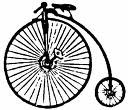One of the reasons I started this blog was because I had decided to change jobs, and do something different. (More on that another time.) I have now left my full-time corporate job, and am working as part-time freelancer for my old employer. So far, the resultant drop in income has been manageable, but I am preparing for the fact that in a few months' time, I may well have no income at all for a time. And my husband works freelance, currently on a contract until mid-May. And when he finishes that, we would like to take advantage of some free time by going travelling for a few weeks.... Hence my heightened interest in saving money.
So far, we've made a few changes, which I've written about here:
-Trying to keep track of everything we spend, on excel. I think that we spend less as a result, and it is a useful exercise.
-Starting a weekly food jar. I mentioned this briefly, and will no doubt write about it more at some point, but allocating a set amount of cash, and using that to pay for all food, is something we've been doing for the past few weeks. So far, it is working well and we have stayed within budget each week, and quite enjoyed the process.
-Reviewing all our regular outgoings more stringently, and making another attempt to cut, or reduce, those that we think aren't really necessary. (Having read more about pet insurance, I cancelled that, as it is true that I cannot envisage a situation where we would be able to actually claim on it. However, the cat may now develop a rare disease needing expensive treatment....)
-Saving as much as possible, and in my case making full use of my ability to contribute to a pension, while I can.
I do think that having more time to spend on watching our outgoings and planning ahead, and so far being happier and less tired, means that we 'need' less to live on at the moment. Fewer meals out, less impulsive shopping to cheer me up, more time to plan meals and so on.
If we do end up living on one income for a while, then I'm determined that even if things are a bit tight in other areas, we a) keep allowances, even if they are small ones, for personal spending, and b) that we both keep paying into pension schemes. (His is automatic, and a much more valuable scheme than mine in terms of benefits, but I will keep up a contribution of some kind even if I am not earning.)
Join Us for Move 26 in ’26
1 month ago




